Children’s Rights Research Fund
DEADLINE 1 APRIL 2024
The Children’s Rights Research (CRR) Fund in association with Maastricht University (UM), and supported by University Fund Limburg, is offering grants of up to €2.500 for education projects and up to €5.000 for research projects related to children’s rights.
All applications must include at least one UM affiliated person on the project team. As such, all UM staff members and students may apply. If you are not affiliated with UM but would like to apply, then we offer a matchmaking service to help you connect with UM researchers who would be interested in collaborating on your project so you can apply to the CRR Fund together. (The deadline to be added to our matchmaking page is 20 February 2024).
UM students who intend to apply may be assisted by Dr. Marieke Hopman by means of a coaching interview (email:
You can find more information on the funding criteria and how to apply below. See the about us page for more information on the CRR Fund.
Applications should be sent by email to
Deadline 1 April 2024.
FUNDING CRITERIA
All the following criteria must be met for the application to eligible for the grant:
- At least one of the goals of the project should aim at improving the living situation of children.
- All projects must include at least one UM affiliated person (staff member or student). Collaboration with non-UM people and organizations is allowed (see our matchmakingpage for collaboration opportunities). However, the UM affiliated person’s role in the project must be clearly stated in the application and their work must constitute at least 50 percent of the overall project’s work.
- The involvement andparticipation of children is a requirement for research project proposals. Projects without any involvement of children or with limited participation will not be eligible for funding.
- Education project proposals should have a strong emphasis on stimulating children to think and act creatively, critically and with a problem-solving orientation. Applications aimed at passive learning will not be eligible for funding.
- Projects may take place in the Netherlands or in other countries.
HOW TO APPLY
- The application (max. 3 pages A-4) must describe the goal(s) of the project, the timeline, the way in which it will be implemented and its intended outcome(s).
- Both education and research project proposals must indicate which third party will be involved in the project, if any.
- For research projects, a short explanation of the methodology must be provided.
- An estimate of costs and revenues must be attached. As a condition of receiving the grant, the budget cannot include any payments to external organisations that do not directly benefit the project (e.g. payments to CSO/NGOs).
- Please note that, for research projects, it may be necessary to ask for approval from the Ethics Committee of Maastricht University before the project can start.
- Applications should be sent by email to
This email address is being protected from spambots. You need JavaScript enabled to view it. by 1 April 2024. Please provide your names and positions within the project when submitting the proposal.
DISCLAIMER
- An Advisory Committee will review the applications and draft a nomination for funding to the Board of the Fund.
- Funding is not guaranteed.
- Recipients of a grant must report at least two times about the project via the website (com). They should also mention the funding received in (all) their relevant publication(s) or other activities related to the project.
1. ARE YOU INTERESTED IN USING OUR MATCHMAKING SERVICE TO FIND SOMEONE AT MAASTRICHT UNIVERSITY (UM) TO APPLY TO THE CHILDREN'S RIGHTS (CRR) FUND WITH?
All applications for the CRR Fund must include at least one UM affiliated person. However, for external children’s rights researchers and practitioners apply we offer a matchmaking service to help pair you up with someone from Maastricht University (student or staff member). If you find a match, then you can apply together. If you are interested in using our matchmaking service, then please send an email to
Matchmaking deadline: 1 March 2024 (after this date we will no longer add new profiles to the matchmaking service)
Grant application deadline: 1 April 2024
Disclaimer: Please note the UM affiliated person’s role must be clearly stated in the application and their work must constitute at least 50 percent of the project’s overall work. Additionally, we cannot guarantee a match will be found.
2. ARE YOU A UM STUDENT OR STAFF MEMBER INTERESTED IN WORKING TOGETHER ON CHILDREN'S RIGHTS PROJECTS?
Check out the exciting projects listed below. All these experienced children’s rights researchers and/or practitioners are looking for UM affiliated people (students or staff members) to apply to the Children's Rights Research Fund for grants of between €2.500 and €5.000. If you see a project that you’re interested in working on then you can reach out directly to the researcher using the contact details on their project profile.
More information on how to apply for the Children’s Rights Research Fund can be found our call for funding page.
Grant application deadline: 1 April 2024
Disclaimer: All research teams must include at least one UM affiliated person (student or staff member) to be eligible for the grant. The UM affiliated person’s role must be clearly stated in the application and their work must constitute at least 50 percent of the overall project’s work. Researchers are not vetted by the CRR Fund.

Jennifer Eloundou
Topic: Children's voices in conflict zones: investigating the impact of conflict on education in the Anglophone regions of Cameroon. This research project explores the challenges faced by children in the ongoing armed crisis in Cameroon's Anglophone regions. The study aims to be a conduit for the voices of these vulnerable children, utilising qualitative interviews, participatory methods, and child-friendly approaches to uncover the multifaceted implications of conflict on access to education. By giving agency to children’s voices, the study will illuminate barriers they face, ranging from disrupted schooling to physical safety concerns. It seeks to inform child-centric policies and interventions to protect and promote the right to education in conflict zones.
Tasks: In this research project, the collaboration partner will contribute by conducting literature reviews, collecting and analszing data, offering critical feedback and actively participating in project meetings and discussions to advance the research goals.
Requirements: A master’s student, PhD Student, research assistant or professor with a background in international relations or international law .Ideally, the project partner is familiar with children’s rights, education or conflict.
Contact:
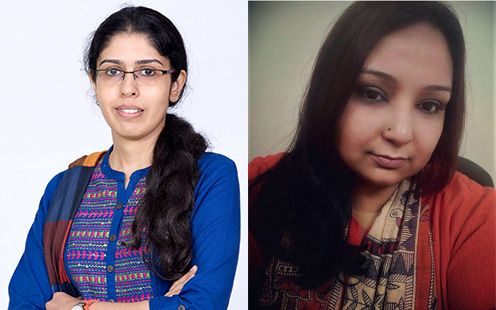
Dr. Garima Tiwari and Dr. Shambhavi Sinha
Topic: The research project will study the practice of Female Genital Mutilation (FGM) and children in India. This horrific and forced practice has severe physical, and psychological implications. At present, India has no laws prohibiting FGM. The research aims to assess the existing legal and judicial position on FGM in India and learn from comparative perspectives in other countries. Using peer advocacy and involvement of child victims of FGM, the project aims to create safe spaces for experience sharing by children. Through field work, community engagement, and policy recommendations, the project hopes to create awareness, intergenerational dialogue, challenge social norms, and ensure a brighter, FGM-free future.
Tasks: The collaboration partner would be involved from the first stage of developing the proposal to the completion of the project. We hope to involve our collaborating partner in knowledge creation, analysis of the material collected through interaction with children, workshop and report making.
Requirements: Student or faculty with a background in law or social science who is passionate about child rights issues particularly from a socio-legal perspective.
Contact:
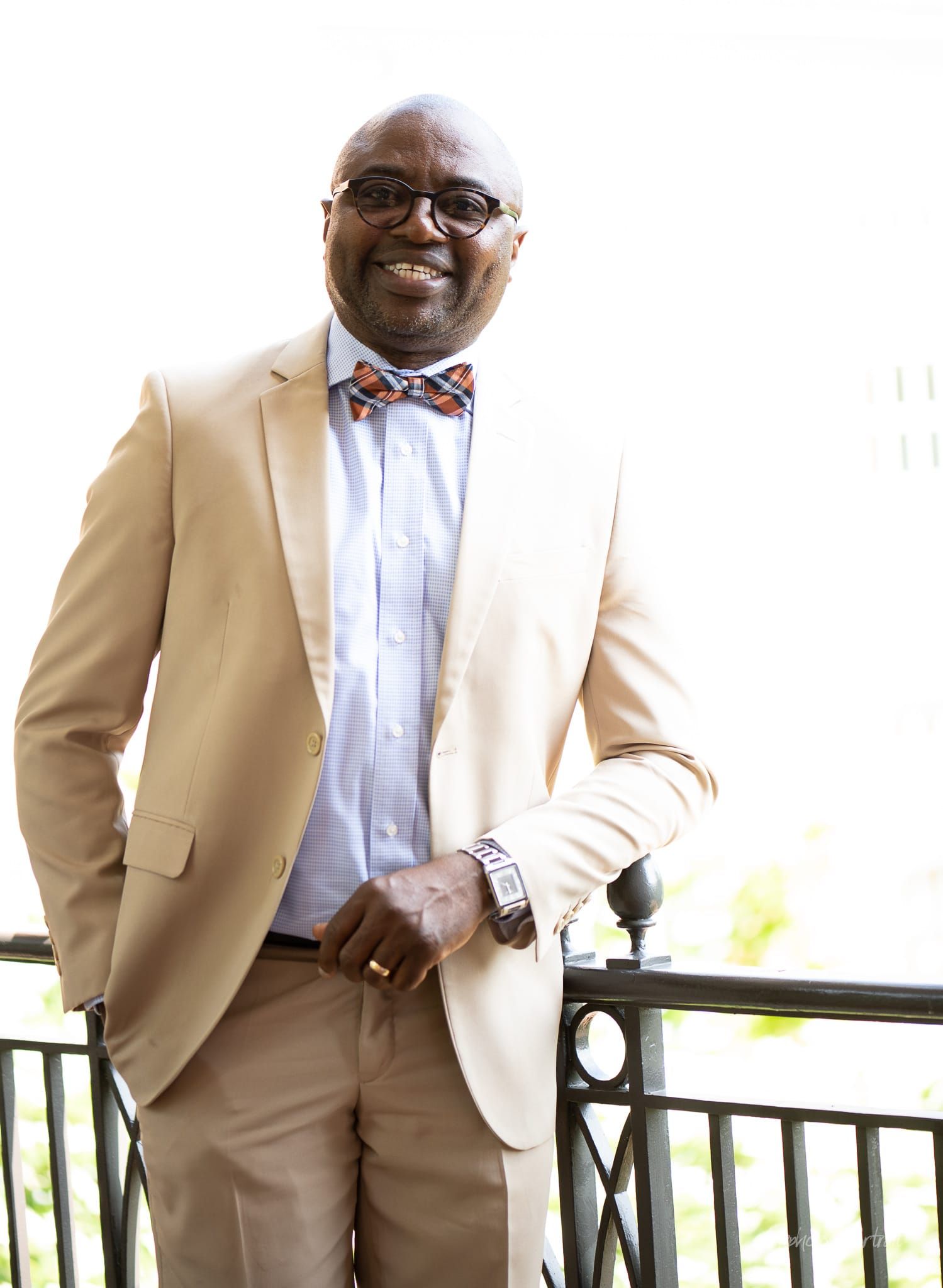
Matthias A. Seisay
Topic: The research aims to improve adolescent girls’ lives through easy-to-use, relevant reading materials, community engagement, and advocacy skills in the Moyamba district, southern Sierra Leone. The objectives are to: 1) raise greater awareness among girls and community members in Moyamba district on removing the barriers inhibiting the girls’ progress through face-to-face talks, town hall meetings, and reading and advocacy materials in a pilot program; 2) arrange peer-to-peer meetings among girls to suggest practical and creative ways of addressing gender-based violence, including early or forced marriage; 3) to produce eye-catching posters addressing gender-based violence and early and forced marriages.
Tasks: The collaborating partner will be the point person to coordinate the research program from the CRR/UM end. This will involve arranging meetings to discuss thematic aspects of the research and a timeline on when to achieve each benchmark. Considering that we live on two different continents, it will also be important to clearly establish expectations/responsibilities with the collaborating partner.
Requirements: Undergraduate students or master’s students, with experience in qualitative and quantitative research. Strong communication and writing skills, and willingness to travel overseas on research field visits as necessary.
Contact:

Mukhobeh Moses Khaukha
Topic: This case study of Bududa District, Eastern Uganda, is about the implementation of Children voice at Home. In Uganda, Bududa District in particular, most homes and adults consider children as naïve about what they want, what they go through, the challenges they experience and cannot define their future aspirations. This has left many young people growing up without confidence, falling into traps of those regarded as elders’/sugar dads., and indeed Many girls have ended up in early marriages, dropping out of school and many children are experiencing child labor yet with nobody to defend them, nobody on their side, and nobody listening to their voice. The extent to which children voice is listened to in this community is not documented. Hence there is a need to conduct a study to evaluate the extent children voices are implemented and incorporated in the day today running of homes. The big question in this study is on when, on what, do children’s voice count at household level. In the study suggestions, and adoptable recommendations will be sought to promote children voice at household level and in society they live in.
Tasks: The partner will get involvement of study protocol, Lobbying for funding, development of study tools, guide in field data collections, lead Data processing, report writings, and publication
Requirements: The partner should have at least Master’s Degree in fields related to Child rights, Social Work, Social Sciences, development studies, Communality development, or related field.
Contact:
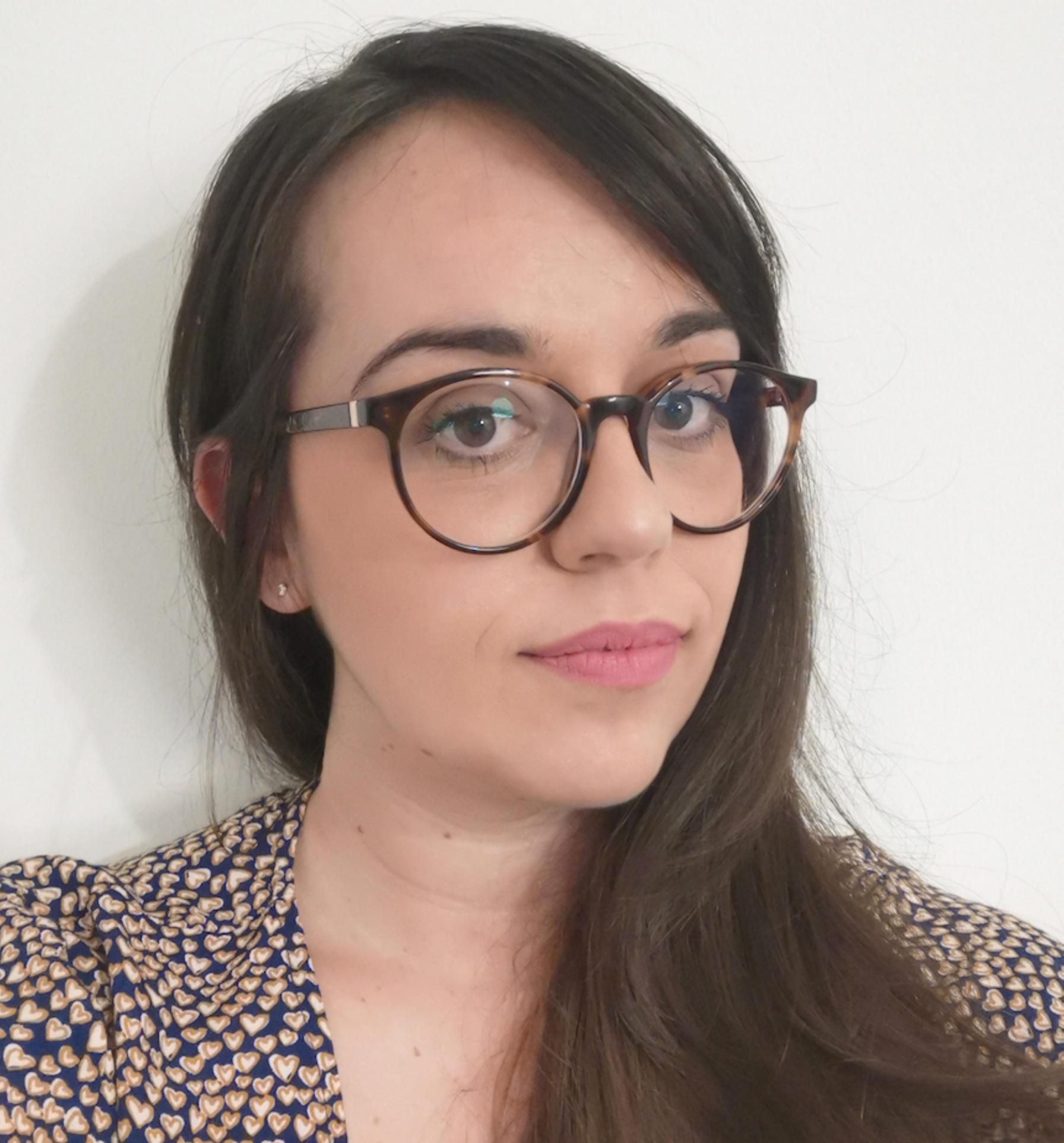
Jeannette Wöllenstein-Tripathi
Topic: Recognising substantial gaps in legal and practical protections for children born through surrogacy, ISS engaged in an extensive consultation process leading to the development of international guiding principles known as "The Verona Principles" (March 2021), available at: https://iss-ssi.org/surrogacy/. Despite various legislative efforts, children and other involved parties continue to face risks of exploitation and rights violations. Within a multifaceted project, ISS aims to conduct research on current surrogacy trends (national and global scale), and remaining challenges for children’s rights. This research, as an integral component of the project, will inform the latter’s priorities and implementation.
Tasks: The researcher would conduct qualitative research aimed at understanding current and future surrogacy trends, with the objective to gather further data on laws/policies, and in general practices on international and domestic surrogacy in its various forms. The researcher is asked to adopt a child-rights-approach within the wider human rights framework.
Requirements: A master’s student, PhD Student, research assistant or professor with a background in children’s rights, private international law and/or international human rights law. Dynamic professional who thrives to work within a team of multilingual child rights specialists from different backgrounds.
Contact:

Anna Rodriguez
Topic: Since 2019, DEI Belgique has worked with children and young people with experience of migration in order to collect their experiences, opinions and recommendations, with the view to address key gaps in protection (found during their migration journey, but also in reception centres as well as after gaining international protection status or other forms of legal residence) and improve prevention, safety and support to victims through integrated child protection responses. As part of these activities, we have for example worked closely with young people to co-create education and awareness-raising materials on the topic of gender-based violence, as well as advocacy messages and tools in innovative formats, such as this illustrated Manifesto, denouncing multifaceted structural violence.
Tasks: Overview and inputs into DEI Belgique’s proposed methodology, help designing questionnaires or guidelines for key activities (interviews, data collection or staff training guidelines).
Requirements: Experience in social sciences and specifically, conducting research with and for young people; solid knowledge and background in child safeguarding standards, familiarity with theories of participation (Hart’s ladder of youth participation) and the evaluation of a participative process, willingness to work on migration-related / children in fragile contexts issues.
Contact:
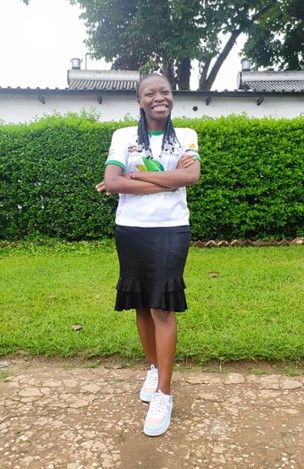
Florence Chikumba
Topic: Initiative in Perspective Title (IPT): Averting Climate Violence (CV) Exacerbating Childhood Sexual Violence (CSV) of Children in Neglected and Marginalized Communities. A Case of Goromonzi, District Zimbabwe.
Our initiative is youth-led initiative, community-driven, people-oriented, inclusive and transformative agenda to meet the unmet climate change needs. The project has its basis in opening up a conversation around the intersection of Climate Violence (CV) and childhood sexual violence (CSV) in marginalized communities. For far too long children, young people and women in the rural areas have been victims of climate violence. To make matters worse, odds have also been against them for a long time as patriarchy, neoliberalism, and capitalism has/is already putting them in positions of disadvantage on all facets of life. In our own terms, we define Climate Violence (CV) as the absence of peace, it’s a society encumbered by violence of wildfires, floods, pollution, worsened incidences of diseases, extractivism, sharp food and water insecurity. Our intervention will be implemented in Goromonzi Rural District, Zimbabwe. It is an area located in the countryside under siege from the effects of climate violence as described above. Additionally, the environment is populated by children who dropped out of school, and face challenges such as rape, child labour, child neglect, and food scarcity. As young people with enthusiasm to achieve social development through research and movement-building we came together for the common good to change narratives in poor communities in the jaws of Climate Violence and childhood sexual violence (CSV).
Task: The partner will be expected to draft child rights protocols/guides during the implementation process, offering research expertise in drafting data collection tool, analysis and reporting writing. In addition, the partner will also play a pivotal role in visibility efforts to amplify our project activities to our stakeholders, partners and beneficiaries especially on social media. Futhermore, the partner might offer some community engagement/support to our project team on the ground.
Requirements: UM staff or students with expertise or interest in child protection, childhood development, climate change, community development, project management, monitoring and evaluation
Contact:
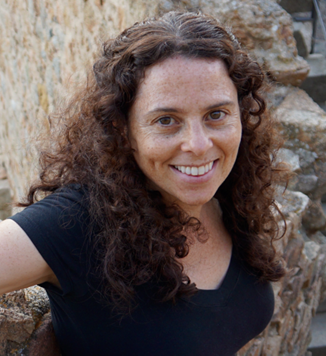
Yael Warshel
Topic: The Trauma of Internal Displacement: A Research project drawing a common thread line between Palestinian and Israeli children
Since October 7, 2023, internal displacement has affected various sectors of Palestinian and Israeli society, with Gazans among the former and those from the north and south of Israel among the latter. This shared experience, varying in conditions, has become a defining aspect for the current generation of Palestinian and Israeli children, intertwining with broader societal and national narratives.
This research project will result in a short child-led book targeting 5-8 year-old Palestinian and Israeli children in efforts to help them make sense of and work through the current trauma of displacement, and find means to move forward after the “war” “ends”. Importantly, most efforts targeting child trauma do not address displacement. Instead they draw upon traditional tools from psychology. This project uniquely departs from there by incorporating literature and knowledge about forced displacement in efforts to critically and constructively address the nature of such ongoing trauma, in order to find means to help empower children and become cognizant of displacement experienced by those with versus without statehood. Finally, drawing on recommendations made in Experiencing the Israeli-Palestinian Conflict, Arab/Palestinian Israeli children will feature centrally in the book’s narrative -- both as characters in it and focus group respondents generating it, in efforts to encourage their leadership in fostering narrative bridges and brainstorming solutions across the ongoing displacement.
Tasks: In this research project, the collaborating partner will contribute by illustrating the children’s book, participating in ongoing meetings taking place with the team writing the text for the book (separately in Arabic and Hebrew), and helping with generating the required formative research by leading and/or assisting with (separate) focus groups with 5-8 year old Palestinian, Jewish Israeli and/or Arab/Palestinian Israeli children that will serve as the basis for generating and fine tuning the text and images.
Requirements: A Master’s or PhD Student, Research Assistant or Professor with a background in fine arts who has drawn for and about child subjects, is fluent in at least one, through preferably all three of the following languages: Arabic, Hebrew and/or English, and ideally familiar with Palestinian and Israeli culture/al studies and forced migration studies.
Contact: Yael Warshel:
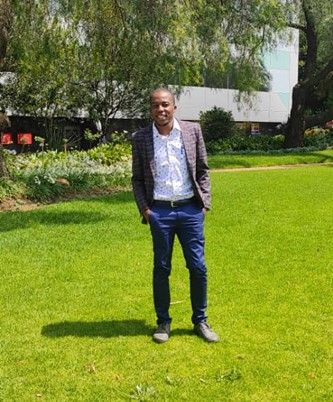
Tapiwanashe Hadzizi
Topic: Building Youth-led Solidarity Economies: Facilitating and Addressing Technology-Facilitated Sexual Violence against Children (TF SVC).
In one way or the other young people in the modern society are now digital citizens, they own a digital gadget, have access to the internet or use social media platforms for learning, business engagements, and socialization. It’s crystal clear that children and young people are the most active users of digital products/spaces or platforms.
Digital life provides vital spaces for young people and children in their diversity seeking expression and opportunity including access to basic education and social interaction and, yet it is simultaneously a vector for perpetrators and abusers targeting children, young people and adolescents. Technology-Facilitated Sexual Violence against Children (TF SVC) comprises a spectrum of behaviours, including stalking, bullying, sexual harassment, exploitation, and is often associated with mis and disinformation and violent extremism, which are perpetrated online or using technology. As young people from different academic backgrounds with a shared vision and passion about realising a society free from online child sexual violence, we came together in order to push for youth-led initiatives for online safety through research and base-building of different action stakeholders in the field of child protection fraternity. Our initiative thrives to offer decision making data by highlighting prevalence, forms and drivers of online violence against children based on child centred– approaches and intersectional view.
Task:
Requirements: UM staff or students with expertise or interest in child safeguarding initiatives, psychology/social work/sociology, online safety, digital research, community development, program coordination, health promotion, project monitoring and evaluation.
Contact:
Children’s Rights Research Fund - Jury Report on the Call for Applications for Funding – April 2024
Introduction
The Children’s Rights Research Fund is affiliated with Maastricht University and the University Fund Limburg (SWOL). It aims at supporting research and education projects in the field of children’s rights by staff and students from Maastricht University, with an option to cooperate with third parties. The Fund will make grants available once a year.
Applications by Maastricht University staff and students can be submitted for
- A research project with a maximum of € 5000,-.
- An education project with a maximum of € 2500,-.
Projects may take place in The Netherlands or in other countries. Collaborations with people or organizations are welcomed. However, applications should involve at least one Maastricht University student or staff member.
Funding criteria
The application (max. 3 pages A-4) must describe the goal(s) of the project, the time-line, the way it will be implemented and its intended outcome. In addition,
- At least one of the goals of the project should aim at improving the living situation of children;
- As for research projects, the involvement of and participation by children is required. Projects without any involvement of children will not be eligible for funding;
- As for education projects, there should be a strong emphasis on stimulating children to think and act creatively, critically and with a problem-solving orientation. Applications aimed at passive learning will not be eligible for funding;
- It must indicate which third party will be involved in the project, if any;
- For research projects a short explanation of the methodology must be provided;
- An estimate of costs and revenues must be attached.
The deadline for the call in 2024 was 1 April 2024.
The jury was composed of Prof Fons Coomans (chair), Dr Philip Veerman, Mrs. Christiane Verfuurden and Prof Andrea Broderick, members of the Advisory Board of the Children’s Rights Research Fund.
Decision
For the 2024 call 8 applications have been submitted, six by students and two by members of the staff of Maastricht University. The Jury has decided to award two applications with a grant. Hereafter it will briefly explain the reasons underlying these decisions.
Title of the Project:
The Right to Research Transnational Sibling Relationships: a co-research project with Ghanaian background youth in Germany.
Submitted by Dr Laura Ogden, member of the staff FASOS.
This proposal addresses the research gap on young people’s transnational sibling relationships through a co-research project with Ghanaian migrant children and youth, embedded in children’s right to participation (or ‘right to research’) and the rights of siblings. Through a series of workshops in Hamburg, co-researchers will receive training in research methods and conduct mini-research projects in collaboration with the PI. The project will result in a website presenting research results and a journal article, while contributing to building a research agenda about migrant youth’s intra-generational kinship, for which future funding will be sought.
The Jury is positive about this project proposal. The topic (transnational sibling relationships between young people in Germany and Ghana) is innovative and topical. The project is embedded well in a children’s rights framework. The way the research will be carried out (through co-research with migrant youth) is appealing and also interesting from a methodological point of view. However, the Committee also sees challenges, such as the meaning of the term ‘right to research’ in terms of right-holders and duty-bearers and its operationalization. In addition, the way the project will be carried out in the mini-research projects and the training of the young co-researchers need further thought and elaboration in particular with respect to the research skills that are required and how to teach these to young people.
The Committee has decided to grant € 2350,- for this project.
Title of the Project:
The Rights of Children Who Lost Their Land: Investigating Protection under Article 39 CRC for Children from the Republic of Artsakh.
Submitted by: Rebekka Wernicke, student Faculty of Law
The focus of this proposed research project is the children from the Republic of Artsakh (also known as Nagorno Karabakh), whose legal status as part of a displaced population, as well as access to rights including education, healthcare, food, housing, and identity remains uncertain.
In the week following 19 September 2023, 30,000 children fled the territory of the Republic of Artsakh into Armenia.
This project is about the practical meaning of Article 39 of the UN Convention on the Rights of the Child for children that used to live in a de facto state, namely the territory known as Nagorno Karabakh. Article 39 of the UN Children’s Rights Convention (CRC) holds the obligation for state parties to ‘take all appropriate measures to promote physical and psychological recovery and social reintegration of a child victim of: (...) armed conflict’.
The goals of this project are, firstly, to research what specific measures (falling under Article 39 CRC) the Armenian government has taken for the protection and development of the children forced to flee Artsakh. Secondly, to hear and understand from the children themselves how they have experienced such measures. This includes both the short-term measures such as the refugee response plan, and the longer-term measures, for example those relating to education and social integration.
The Committee finds this project interesting, practical and very timely. It deals with a group of children for which the international community has little attention, because they used to live in a territory whose status as a de facto state is disputed. This has also consequences for the opportunities of these children to enjoy internationally recognized human rights. The particular value of this project is holding interviews with the children concerned aimed at listening to their experiences and assessing whether the measures taken by the authorities have been sufficient to protect their rights in light of the obligations of Article 39 CRC. These interviews will be conducted in collaboration with members of a local children’s rights research team. The Committee advises to think through and elaborate the method of holding interviews with vulnerable children, such as the training of the local interviewers.
The Committee has decided to grant € 2470,- for this project.
On behalf of the Jury,
Prof Fons Coomans, Chair
26 April, 2024

Introduction
The Children’s Rights Research Fund is connected to Maastricht University and the University Fund Limburg (SWOL). It aims at supporting research and education projects in the field of children’s rights by staff and students from Maastricht University, with an option to cooperate with third parties. The Fund will make grants available twice a year.
Applications by Maastricht University staff and students can be submitted for
- A research project with a maximum of € 5000,-.
- An education project with a maximum of € 2500,-.
Projects may take place in The Netherlands or in other countries. Collaborations with people or organizations are welcomed. However, applications should involve at least one Maastricht University student or staff member.
Funding criteria
The application (max. 3 pages A-4) must describe the goal(s) of the project, the time-line, the way it will be implemented and its intended outcome. In addition,
- At least one of the goals of the project should aim at improving the living situation of children;
- As for research projects, the involvement of and participation by children is required. Projects without any involvement of children will not be eligible for funding;
- As for education projects, there should be a strong emphasis on stimulating children to think and act creatively, critically and with a problem-solving orientation. Applications aimed at passive learning will not be eligible for funding;
- It must indicate which third party will be involved in the project, if any;
- For research projects a short explanation of the methodology must be provided;
- An estimate of costs and revenues must be attached.
The deadline for the second call in 2023 was 15 November 2023.
Only one application was received, submitted by a student of Maastricht University in cooperation with a third party. No applications have been submitted by staff members of Maastricht University.
The jury was composed of Prof Fons Coomans (chair), Dr Philip Veerman, Mrs. Christiane Verfuurden and Prof Andrea Broderick, members of the Advisory Board of the Children’s Rights Research Fund.
Decision
The Jury decided to award the only application submitted with a grant. It will briefly explain why the project application has been awarded a grant.
Title of the Project: Well-being of Underprivileged Youths in Mauritius
Submitted by: Ms. Audrey Janssen, student at the Faculty of Arts, Culture and Social Sciences (FASOS)
This research project will be done in the framework of the Master thesis assignment of the applicant. It will be executed in cooperation with the NGO Terre de Paix which carries out projects on children in Mauritius. The project will deal with the question how the projects carried out by Terre de Paix improve the well-being of underprivileged children in Mauritius as perceived by the children themselves. The applicant will research this question from a multidimensional perspective. The project is composed of several parts, including a literature review and detailed study, quantitative and qualitative research, including a field study and interviews and conversations with stakeholders in Mauritius.
The Jury found the project interesting from the perspective of children’s rights. The Project will focus on the notion of the well-being of children that is closely related to the concept of development of children. For better understanding these two notions, the project will have a good basis in the literature on these subjects. A key feature of the project will be the participation of children in the project implementation: it will apply the so-called Lundy model of participation to achieve this. The Jury wants to emphasize and to recommend that adequate attention should be given to the ethical aspects of involving young children in the project, such as the informal conversations with them to make sure that they feel safe and are able to participate freely. Language and communication issues may constitute a barrier for such an open and constructive dialogue.
The Jury decided to award an amount of € 2.500,- for this project.
First call in 2024
A new round for applications for funding will take place later this year. The deadline is April 1st, 2024. In particular, students from Maastricht University are encouraged to prepare and submit an application. They may consult Dr Marieke Hopman of the Children’s Rights Research Fund for advice (email:

Introduction
The Children’s Rights Research (CRR) Fund is connected to Maastricht University and the University Fund Limburg (SWOL). It aims to support research and education projects by staff and students from Maastricht University in the field of children’s rights, with the possibility to cooperate with third parties. The CRR Fund makes grants available twice a year.
Applications can be submitted for
- A research project with a maximum of € 5.000,-.
- An education project with a maximum of € 2.500,-.
Projects may take place in the Netherlands or in other countries. Collaborations with people or organisations are welcomed. However, applications should involve at least one Maastricht University student or staff member.
Funding criteria
The application (max. 3 pages A-4) must describe the goal(s) of the project, the timeline, the way it will be implemented, its intended outcome and, additionally, meet the following criteria:
- At least one of the goals of the project should aim at improving the living situation of children;
- For research projects the involvement of and participation by children is required. Projects without any involvement of children will not be eligible for funding;
- For education projects, there should be a strong emphasis on stimulating children to think and act creatively, critically and with a problem-solving orientation. Applications aimed at passive learning will not be eligible for funding;
- It must indicate which third party will be involved in the project, if any;
- For research projects a short explanation of the methodology must be provided;
- An estimate of costs and revenues must be attached.
The deadline for the first call in 2023 was 15 March 2023.
Eight applications have been received, all of them submitted by members of the staff of Maastricht University in cooperation with one or more third parties. No applications have been submitted by students from Maastricht University.
The jury was composed of Prof. Fons Coomans (chair), Dr. Philip Veerman and Mrs. Christiane Verfuurden. All the aforementioned are members of the Advisory Board of the CRR Fund.
Decision
The Jury decided to award four applications with a grant and not to fund the other applications. Hereafter the Jury will mention the projects that will be funded with a grant and briefly explains why the grant has been awarded.
- Title: Childhood and Legal Capacity. The case of institutionalised children in the City of Buenos Aires, Argentina, submitted by Dr Julieta Marotta (Maastricht University) and Laura Lora, Paula Noelia Bermejo & Rosario Martinez (Universidad de Buenos Aires). This is a research project aimed at the right of children to be heard and to participate in family legal processes. It seeks to achieve this through a dialogue with children aged 16-18. The project will explore how children perceive their experience with the justice system; how children perceive their participation in the legal process in view of evolving autonomy; and, finally, how children understand and construct the concept of access to justice. Different methods will be used to implement the research, namely: participatory research that asks children to create something that reflects their experience with the family justice system (e.g., a TikTok, YouTube video, or a song), and by asking children to participate in the performance of a play.
The Jury was very positive about the active involvement of children in the project, but also about the strong children’s rights perspective throughout the project as a whole. The Jury thought the project to be well structured and feasible with a view to be carried out according to the timeline provided. A grant of € 4.000,- has been awarded for this project.
- Title: CIRCLEcity: Children’s Investigation of Resilient Circular Lifestyle and Environments in the City, submitted by Dr Özlemnur Ataol (Maastricht University) and Roger Thomassen (Center for Nature and Environmental Education Maastricht).
This project entails a collaborative action research with children (aged 11-12 years) living in Maastricht. It aims to investigate the perceptions children have of sustainable / unsustainable consumption behaviour and their approach to utilising circularity in their activities targeting their unsustainable consumption behaviour. The ultimate goal is to both change children’s attitude and behaviour towards sustainable development in line with the Sustainable Development Goals and to promote and empower children to become active and responsible urban citizens. The method that will be used is interactive workshops with children aimed at three purposes: exchanging ideas on views among children about pluriform societies; discussing ideas that exist among children about sustainable / unsustainable consumption behaviour; and making plans about community action involving children, parents and schools.
The Jury appreciated the link in the project between children’s rights, sustainable development and the day-to-day behaviour of children with a view to transforming these concepts to the local level by involving children actively through community action to be developed in workshops. The Jury was of the view that this project is embedded well in the growing (academic) literature on the subject. The Jury decided to grant € 2.600,- to this project.
- Title: Promoting children’s voices in Australian family law decision-making: co-designing a participation toolkit with children as experts by experience, submitted by Peggy Ter Vrugt (Maastricht University) and Dr Georgina Dimopoulos (Southern Cross University, Australia). The research project aims to improve children’s experiences of participation in Australian family law decision-making by co-designing a children’s participation toolkit and to contribute to the growing body of evidence about the value of respecting children’s rights and giving them the opportunity to participate in decision-making about (family) matters that affect them. Focus group discussions with children will be held to collect the ideas and experiences of children about family law matters that they have been involved in. On the basis of this data, a ‘children’s participation toolkit’ will be developed and tested.
The Jury is positive about the organisation and goals of the project, which seem to be feasible in light of the methodology that will be used. There is a strong component of children’s participation in the project, in particular because children are seen as experts by experience. In addition, the project has an interesting perspective on how participation rights of children can be researched and strengthened. It can also provide practical suggestions for legislative ideas on matters of participation of children. The Jury decided to grant € 4.750,- to this project.
- Title: Parliament of Earthquake Children in Adiyaman, Turkey, submitted by Selman Aksünger (Maastricht University), in collaboration with YECED (Children of the Earth Association, Turkey). The goal of this education project is to determine the needs and identify the rights of vulnerable children impacted by the earthquake that occurred in Turkey in February 2023 and to design a strategy aimed at protecting their rights. This will be done through teaching children about their rights in an interactive way. The idea of the project is to teach about children’s rights by actively involving children in workshops and a simulated session of a children’s parliament where they can express their voices, concerns and needs. The target group are vulnerable children who were affected by the earthquake and are living in tent camps in the Adiyaman region. The project will be carried out in collaboration with YECED, a local partner that has experience with working with children.
The Jury very much appreciated the goal of this education project, namely giving a voice to children as victims of natural disasters. These voices often remain unheard or go unnoticed. The Jury is sympathetic towards this goal. In addition, this project is practical and result oriented by interactively involving children and listening to their needs, while at the same translating these into children’s rights and ways to protect and promote these under difficult physical circumstances on the ground. A grant of €2.500,- will be given to this project.
Second Call in 2023
A second round for applications for funding will take place later this year. The deadline is 15 October 2023. In particular, students from Maastricht University are encouraged to prepare and submit an application. They may consult Dr Marieke Hopman of the Children’s Rights Research Fund for advice (email:
